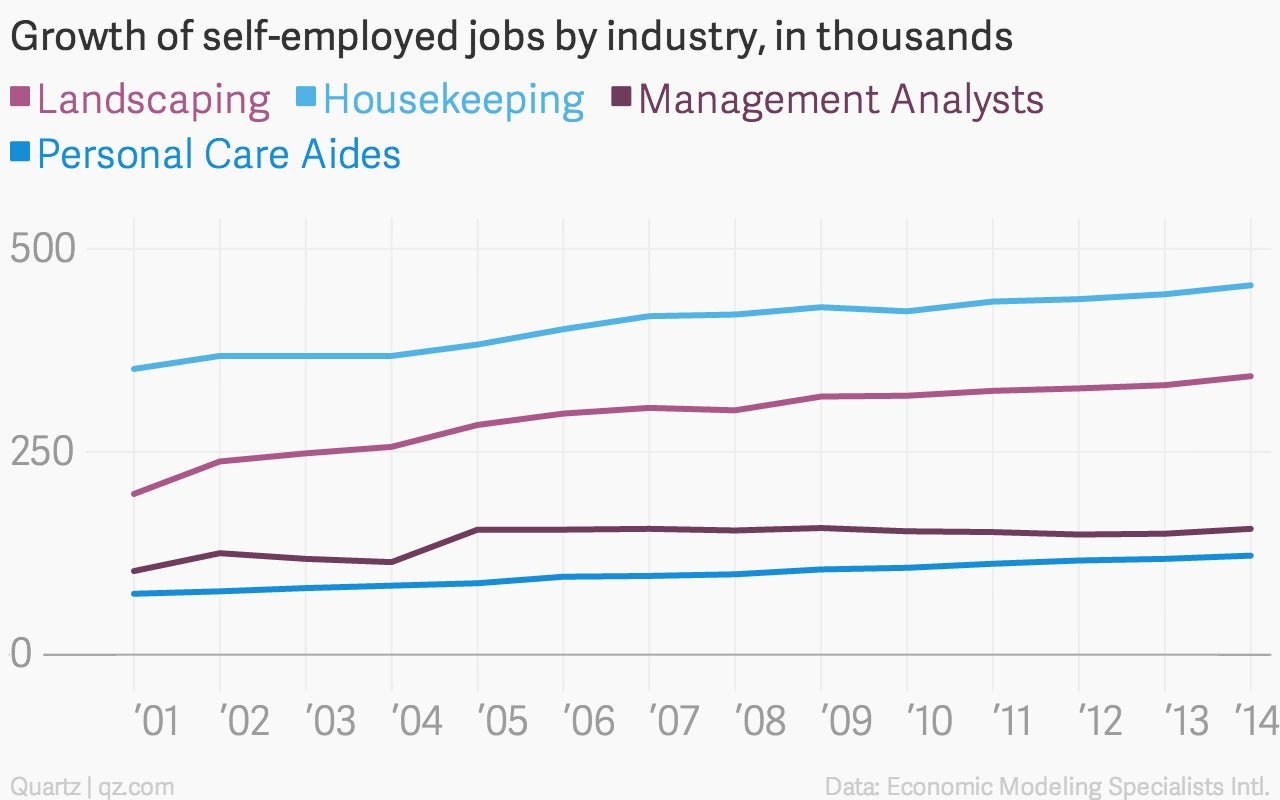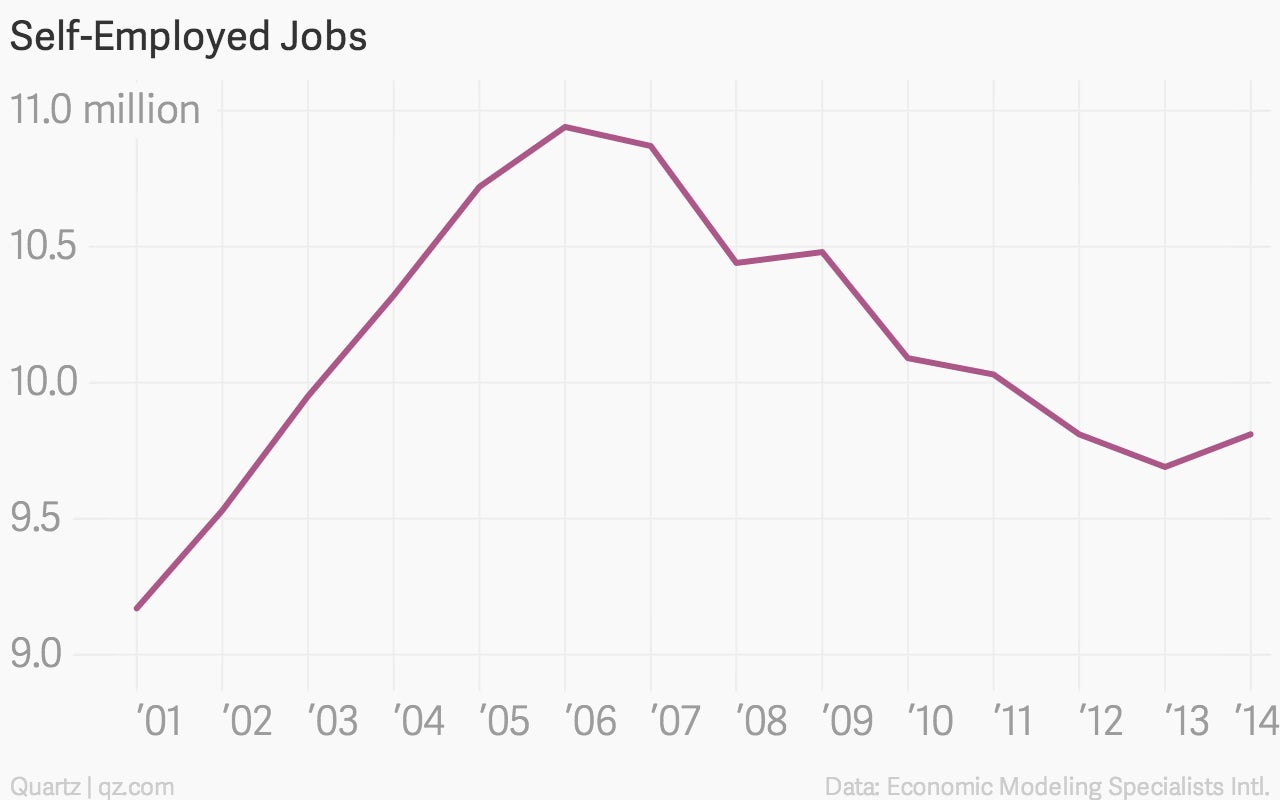It’s cheaper and easier to rent an MBA than to hire one
The on-demand economy, where people work when they want and get paid by the task, has redefined the roles of taxi drivers and created new jobs such as professional grocery store shoppers who are paid by the hour to run other people’s errands.


The on-demand economy, where people work when they want and get paid by the task, has redefined the roles of taxi drivers and created new jobs such as professional grocery store shoppers who are paid by the hour to run other people’s errands.
Less well known is how the 1099 economy (named for the US tax forms filed by independent contractors), is now bleeding into the upper echelon of the workforce: The nation’s top business school graduates.
For many of these people—unlike the “struggling workers” of Uber or the homeless house cleaners at Homejoy who critics say are getting a raw deal—the decision to leave big companies is more often than not, a choice. And their migration has big consequences for the future of employment.
HourlyNerd, a two-year-old startup that lets companies rent an MBA, is bankrolled by the likes of Mark Cuban and Greylock Partners, and this week it secured its third round of financing, bringing the total raised to $12.55 million.
One of its newest funders: General Electric’s venture arm. Perhaps the most institutionally corporate of all global companies is now backing a network of 10,000 graduates from top-40 US business schools.
The rise of these “nerds,” who don’t commute to an office but earn $100 to $150 an hour from companies such as Microsoft and American Apparel, tells an important story about where the labor market and the economy are headed. For one, companies can now bypass costs associated with hiring full-time employees or paying the overhead of big consulting firms, says John Shegerian, president of the recycling giant Electronic Recyclers, which used HourlyNerd to find a Harvard MBA to write a business plan for a new project.
“You get access to really smart people without having to make an annual commitment and pay benefits,” Shegerian tells Quartz. “We’re in a flex society, and entrepreneurs need that flexibility to right-size a business as it grows and contracts.”
While data around the number of freelance workers is murky, and much of the growth has come from personal care aides and house cleaners with far fewer employment options, the number of self-employed management consultants stands out: It has increased by 50% since 2001, according to CareerBuilder subsidiary Economic Modeling Specialists Intl.

Across all industries, self-employed jobs rose 7% during that time, soaring through the frothy web development days of the 2000s but dropping precipitously during the latest recession. The numbers began to tick up last year.

Because the model shifts the risk and responsibilities once borne by big companies onto individual workers, critics decry the burden on the lower-income workforce. But for high-skilled workers there are great benefits to being able to decide when, where, and how they work.
Take what HourlyNerd CEO Rob Biederman calls “McKinsey moms”—women who have Harvard and McKinsey credentials and still want challenging work, but don’t want the erratic schedules and travel demands of a high-powered full-time job. “These highly-skilled people were previously left out of the workforce.”
As NYU Stern professor Arun Sundararajan tells Quartz, “being employed full-time by one company may soon be the exception rather than the rule.”